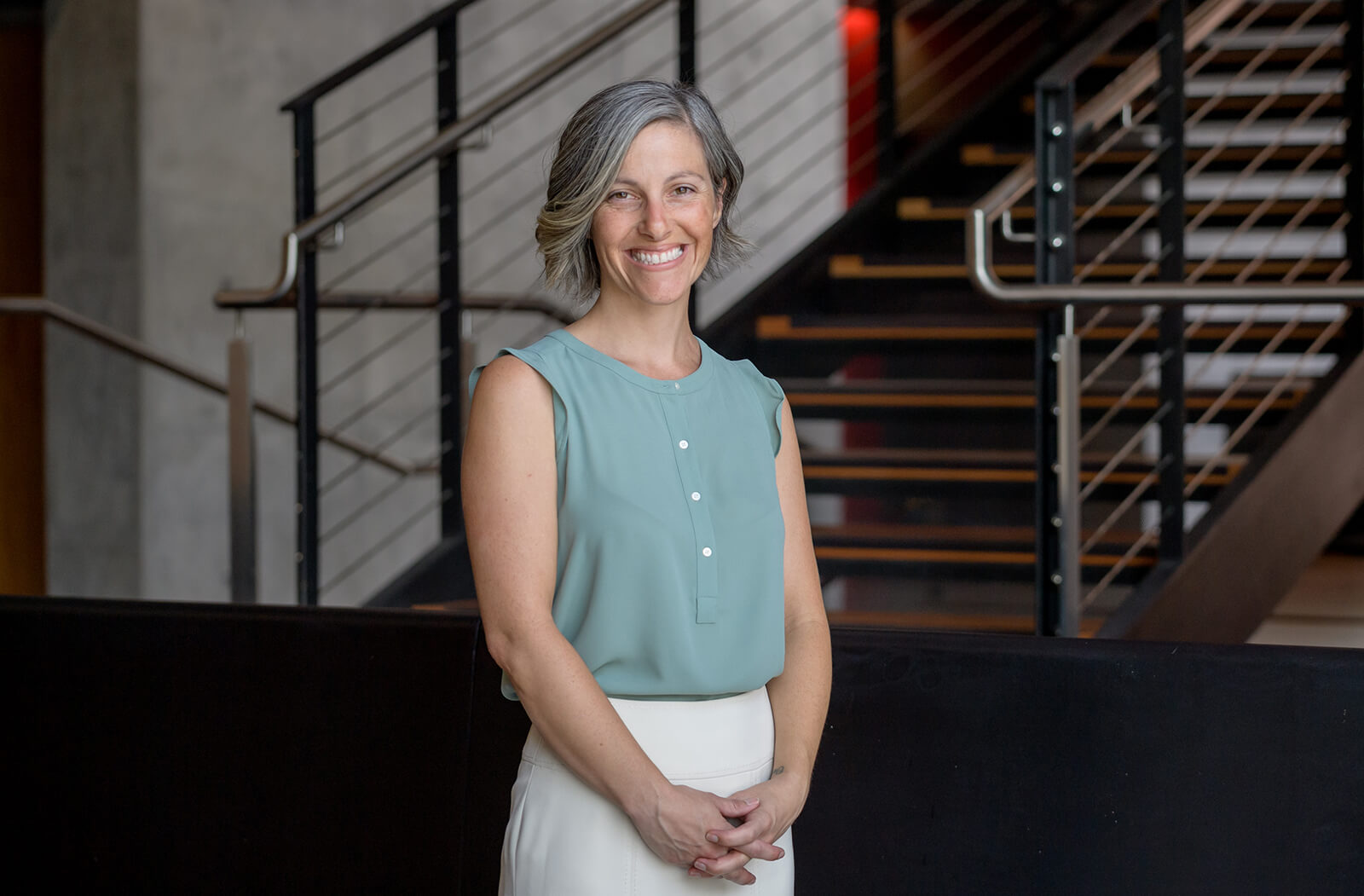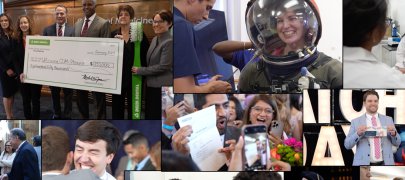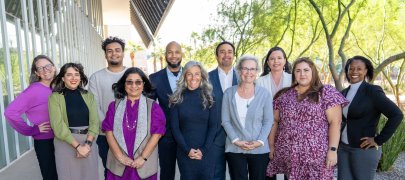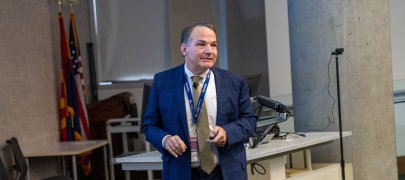
Education Specialist Cammy Bellis, MEd, Strives to Enhance the Understanding and Value of Diversity in Health Care

Cammy Bellis, MEd, is the education and training specialist in the Office of Diversity and Inclusion. She brings a wealth of knowledge about the LBGTQ community to the University of Arizona College of Medicine – Phoenix.
Before coming to the medical school, Bellis was director of the Transgender Education Program at Arizona State University. For the past 12 years, she has presented to teachers, school administrators, counselors and school psychologists on how to create safe and affirming environments for LGBTQ youth in an effort to decrease harassment and bullying. She is a former board member and education training coordinator for the Gay, Lesbian and Straight Education Network (GLSEN) Phoenix. She also founded Mothers in Transition, an organization that advocates for and supports mothers of transgender/gender nonconforming children who find themselves in custody disputes with a rejecting ex-partner.
Earlier this year, Bellis was honored with the Building the Next Generation of Academic Physicians (BNGAP) Health Professional Leadership Award. The award recognizes individuals that work in a health-related professional and have led activities to promote the development of a diverse pre-faculty workforce.
Bellis started her professional career as a high school Spanish teacher and became involved with diversity advocacy as advisor for the student-led Gay Straight Alliance Club. Her experience with students who did not feel safe in their own school led her to graduate school, where she focused on how to teach difficult concepts such as racism, sexism, discrimination, diversity and inclusion, homophobia and transphobia.
What does it mean to win this award?
This award signifies the hard work I have put in over the last two years related to LGBTQ health. I feel it’s important to recognize the work LGBTQ people do to improve the communities they belong to. This award is very important to me, and I am confident it will open more doors to continue to do good work.
How have you been able to move the needle in terms of enhancing the understanding and value of diversity in the health workforce?
Through collaborations and partnerships, it has made it easier to move the needle. When I came to the College of Medicine – Phoenix, I knew I wanted to create trainings solely focused on transgender-affirming health, and we have been able to bring that to a variety of audiences. It has taken some time, but it has been important to become an established, trusted educator, one that people reach out to and ask questions. I appreciate being that person here and find significant meaning in it. With each training, presentation and email response, we are moving the needle.
People are eager to learn how to create affirming health spaces for LGBTQ patients. By leading the creation of our Spectrum faculty and staff group, this has created a critical space for folks to come together, which also informs the work I do. We have trained more than 900 people on LGBTQ health from a variety of populations, including LGBTQ veterans, primary care, those that are undocumented and youth, to name a few.
How will you define success?
Success is defined by who you help and how you make a significant impact. In terms of LGBTQ health, change is slow. Success is incremental, and social justice movements ebb and flow. I see it like turning the Titanic around, especially with regards to the work I do with the moms who share custody of transgender children. These changes take time. I have heard trans rights are about 50 years behind gay rights, which is unfortunate and true in many cases and parts of the country. Being engaged in this work, one must have the mentality that even small change is change. With LGBTQ health and mental health, success would mean that all have an opportunity to attain their full health potential, free from the impact of homophobia and transphobia, and thrive as their authentic selves.
What or who encouraged you to apply for the BNGAP award?
I am of the mindset that you have to put yourself out there. I received an email from BNGAP announcing the award, and I mentioned it to the dean of Diversity and Inclusion Francisco Lucio. I told him it was a long shot, since I had only been in academic medicine for two years, but I thought I had a good chance. As always, he supported and encouraged me to apply, and wrote the letter of support, which I am grateful for.
Now that you’ve accomplished this amazing achievement, what’s next for you?
One big project I am working on is a toolkit for health professionals on how to advocate for and support their transgender/gender-expansive young patients and their families involved in custody disputes. No formal training exists on this topic, and my colleagues and I plan to change that. The toolkit will provide current research, best practices and advocacy tips for medical and mental health providers who find themselves navigating care when one parent supports their child’s gender identity/expression and the other is unsupportive. This was never taught in medical school, and is quite a niche area, so little is known about it.
I hope to shed light on the health and mental health disparities of the supportive moms and their children involved in custody disputes. By turning our attention to the structural and social determinants of health and mental health, we hope to minimize disparate health outcomes. We also are beginning to look deeply at our curriculum to research what knowledge, skill and attitude change around LGBTQ health exists. Dean Lucio and I created a session for the OB/GYN clerkships discussing a transgender patient case through the lens of cultural humility that we are evaluating. We hope this leads to adaptability by other medical schools looking to enhance transgender patient care longitudinally and in developmentally appropriate ways. The sky is the limit, and I am excited about this work.
About the College
Founded in 2007, the University of Arizona College of Medicine – Phoenix inspires and trains exemplary physicians, scientists and leaders to optimize health and health care in Arizona and beyond. By cultivating collaborative research locally and globally, the college accelerates discovery in a number of critical areas — including cancer, stroke, traumatic brain injury and cardiovascular disease. Championed as a student-centric campus, the college has graduated more than 900 physicians, all of whom received exceptional training from nine clinical partners and more than 2,700 diverse faculty members. As the anchor to the Phoenix Bioscience Core, which is projected to have an economic impact of $3.1 billion by 2025, the college prides itself on engaging with the community, fostering education, inclusion, access and advocacy.


